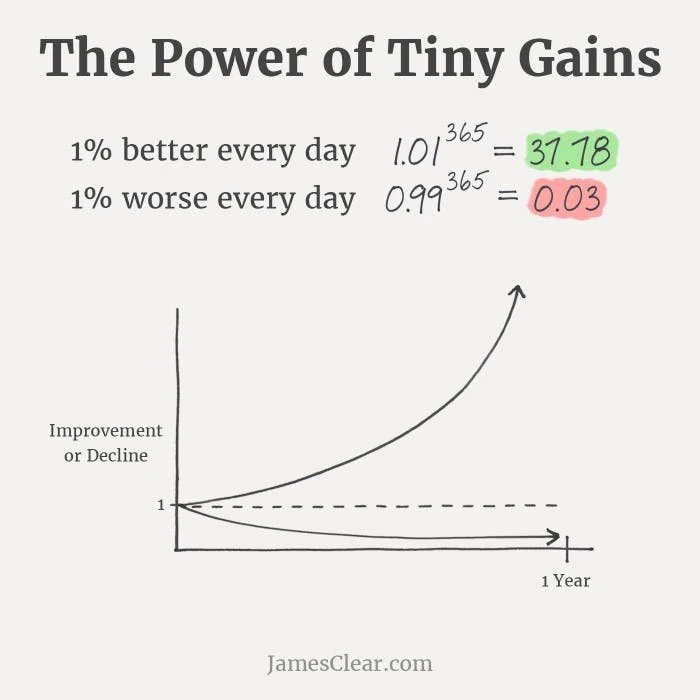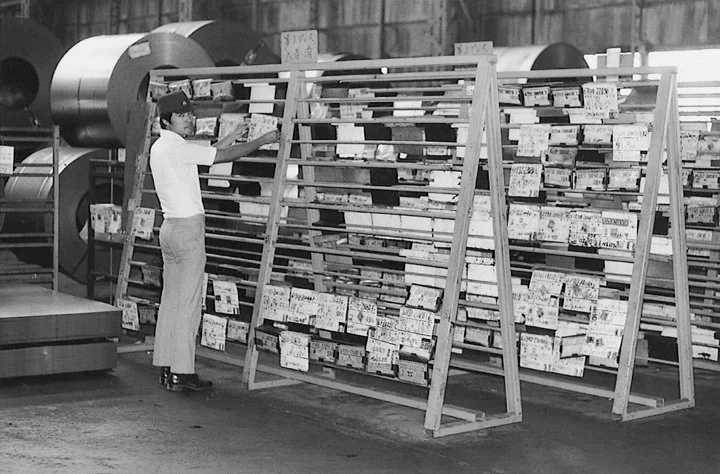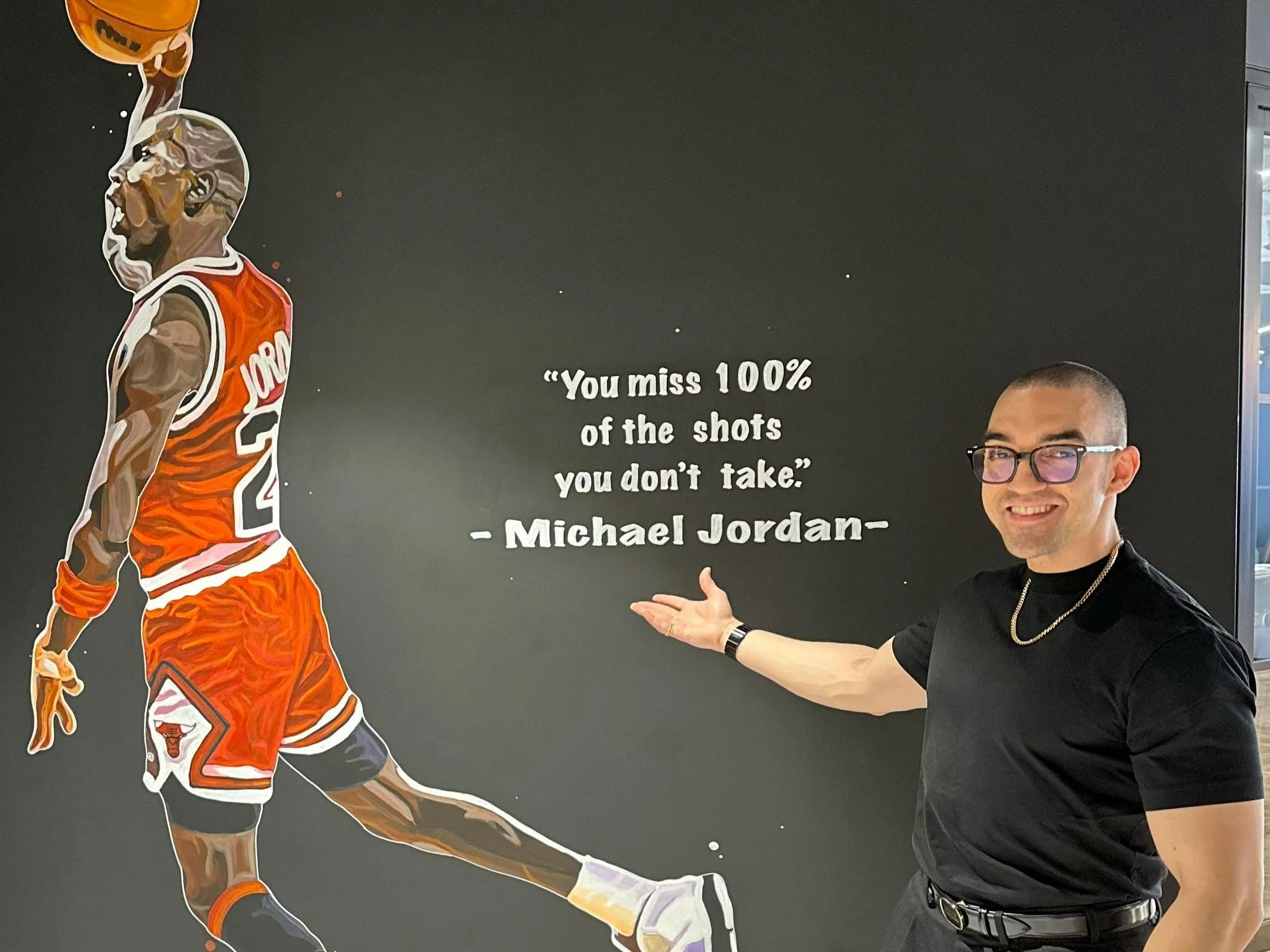Better every day
All great achievements in life — whether in wealth, relationships, or knowledge — stem from the magic of compounding minor improvements. Just as 1% daily growth can lead to a 37-fold increase over a year, consistent tiny gains in our daily efforts can result in extraordinary progress. The key is to focus on being just 1% better each day.
Continuous improvement is exponential growth. By striving to add more than we consume daily, we set ourselves on a path of abundance.
It's not about perfection but progress. I take pride in every time you see me there's progress.
This commitment to daily wins is the heartbeat of my philosophy.
Japanese continuous improvement
My journey with continuous improvement began in an unexpected place - a manufacturing plant floor. As a young mechanical engineer, I was introduced to the concept of Kaizen not through books or lectures, but through the tangible transformation of processes I witnessed daily.
The term "Kaizen" was popularized in Masaaki Imai's 1986 book, but its essence was already flowing through Japanese manufacturing long before that. American quality pioneers like W. Edwards Deming and Joseph M. Juran planted these seeds while helping rebuild Japan's industry after WWII, and Toyota transformed these principles into what would become the most studied production system in history.
But what captured my imagination wasn't just the systematic approach to improvement. It was watching how small, daily adjustments to seemingly minor details could cascade into remarkable outcomes. A worker would suggest a slight modification to their workstation, and within weeks, the entire process flow would become more efficient. A tiny adjustment in tool placement would save seconds, which multiplied across thousands of operations, would save hours.
This wasn't just about manufacturing efficiency — it was a philosophy that spoke to something deeper. The idea that excellence isn't achieved through dramatic overhauls but through patient, persistent, daily refinement resonated with my approach to personal growth.
Toyota's implementation of Kaizen taught me five principles that transcended the factory floor:
Continuous Improvement: Change is not a one-time event but a constant journey;
Everyone Involved: Growth isn't limited to leaders or experts - everyone contributes;
Eliminate Waste: Remove anything that doesn't add value to your life or work;
Go to Gemba: Understand challenges by experiencing them firsthand;
Make Changes Now, Perfect Later: Start immediately, refine continuously. Think big, ship small.
These principles became the foundation of my personal philosophy.
Improvements don't need to be dramatic to be meaningful, “It's evolution, not revolution,” as I learned with Andrea Mastriner.
Just as a manufacturing process becomes more efficient through countless small adjustments, personal growth happens through daily conscious choices to be slightly better than yesterday. Progress compounds.
A Stoic approach to personal growth
The ancient Stoics understood something profound about human progress. To Seneca, one of Stoicism's greatest teachers and the one I admire the most, the path to a fulfilled life was to acquire one valuable thing daily — a quote, an idea, an insight, a story. Something that fortifies you against fear, against adversity. Just one thing. He didn’t say that this one thing makes us perfect but rather that it makes us just a little bit better.
The Stoic approach strips away the overwhelming pressure of massive self-improvement goals and replaces it with something more sustainable: daily, intentional growth. Think of it as building your personal fortress, one stone at a time.
Consider these six Stoic practices for daily improvement:
Morning Preparation: Begin each day by anticipating challenges and starting with the end in mind
Physical Discipline: Train your body as a pathway to mental fortitude, a healthy body for a healthy mind
Mindful Response: Practice the pause between stimulus and response - a moment to choose wisdom over reaction
The Sage's Perspective: Before making important decisions, ask, "What would the wisest person I know do in this situation?"
The Obstacle is the Way: View each challenge as your custom-designed opportunity for growth
Evening Review: End each day by acknowledging what you learned and how you grew
Epictetus, born into slavery in ancient Rome and crippled from an early age, embodied the very essence of daily progress against seemingly insurmountable odds. From these humble beginnings, he became one of history's most influential teachers, proving that our circumstances need not define our growth potential. Notice he doesn't say, "Become perfect immediately" or "Transform yourself overnight." Instead, he advocates for a patient, persistent dedication to progress. This is what I mean by being better every day.
Prolific beats perfect
This message's universality makes it powerful — it applies to every field, endeavor, and goal.
The emphasis shifts from perfection to persistence, from fear of failure to embrace of attempts.
Failure is not the opposite of success. It is a vital step on the journey.
Michael Jordan missed over 9000 shots before legendary status.
JK Rowling was rejected by 12 publishers before Harry Potter.
Stallone's script was denied 1500 times before Rocky.
Edison failed 1000 times before the lightbulb.
Dyson tried 5127 times before the vacuum.
The person who gets 1 shot needs everything to go right.
The person who gets 1000 shots is going to score at some point.
Find a way to play the game that ensures you get a lot of shots.
Prolific beats perfect. Keep shooting your shots.
Sources of wisdom
Atomic Habits by James Clear




